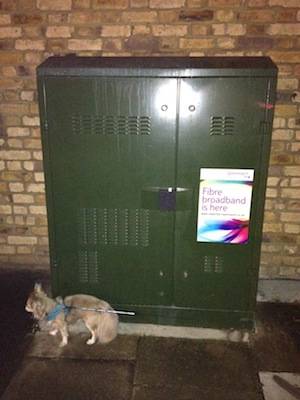GCHQ, the UK’s nerve-centre for eavesdropping spooks, will advise the nation’s business leaders on how best to thwart attacks by hackers.
The educational programme, dubbed Cyber Security for Business, was launched today at an event that brought together chief execs of FTSE 100 companies, government ministers and officials from security and intelligence agencies.
The Communications-Electronics Security Group (CESG) within GCHQ has advised organisations on best practices for IT defences for many years, but this latest scheme puts the intelligence services directly in touch with the private sector for the first time, The Independent reports.
GCHQ drew up a dossier titled Top 20 Critical Controls for Effective Cyber Defence for the programme, which David Emm – senior regional researcher at Kaspersky Lab – likened to a “promo event” for the government’s £650m effort to bolster Blighty’s electronic defences. “Cyber security” was rated alongside terrorism as a “tier-one security challenge faced by the UK” in the Cabinet Office’s National Security Strategy, which gave GCHQ the lead role in protecting the country’s infrastructure from attacks.
Emm told El Reg that threats range from vandalism by political protesters to industrial espionage by rival firms and foreign intelligence agencies, as well as more conventional hacking and malware-based attacks.
From visiting boardrooms to monitoring citizens
UK security chiefs have pushed for an expanded role in “monitoring unusual network traffic” and repelling hacker attacks against critical infrastructure – such as electricity distribution and water pumping – for more a year.
Under draft plans, an expanded national cyber-security hub at GCHQ would monitor data in transit from “major communications, power and transport providers for evidence of hacking”, which would be a big expansion of powers for the small team at the Cyber Security Operations Centre. It is tasked with providing intelligence about threats to national security.
It’s unclear whether the Cyber Security for Business programme will form part of these proposals or is simply a more modest outreach project.
Mark Brown, director of information security at management consultants Ernst Young, welcomed the launch of Cyber Security for Business. He said: “[The] launch is a welcome move by government and serves as a wake-up call to UK Plc on the need to elevate cyber security on the boardroom agenda.
“Recent high-profile breaches and industry research shows an over confidence in organisations’ approach to the subject which remains focused on driving IT compliance. The changing risk landscape, now more than ever, requires a shift in focus to recognise the strategic importance of protecting a company’s information assets.
“Although this is an appropriate short-term solution, the longer term cure for this problem surely involves re-evaluating the skills and knowledge gap in industry rather than government intervention.”
Recent research [PDF] from Kaspersky Lab revealed that although businesses recognise IT security threats as a pressing problem, huge gaps in defences remain. Almost half (48 per cent) of 3,300 IT professionals who responded to the global survey admitted they are insufficiently protected against the theft of intellectual property.
Separately, a survey of 320 UK IT professionals by Check Point, published today, found that a third said their primary focus was on stopping external assaults – such as hacking, distributed denial of service (DDoS) attacks on websites, and malware – while 26 per cent said their main challenge was preventing inadvertent data losses by employees. ®
Article source: http://go.theregister.com/feed/www.theregister.co.uk/2012/09/05/cyber_security_gchq_launch/

